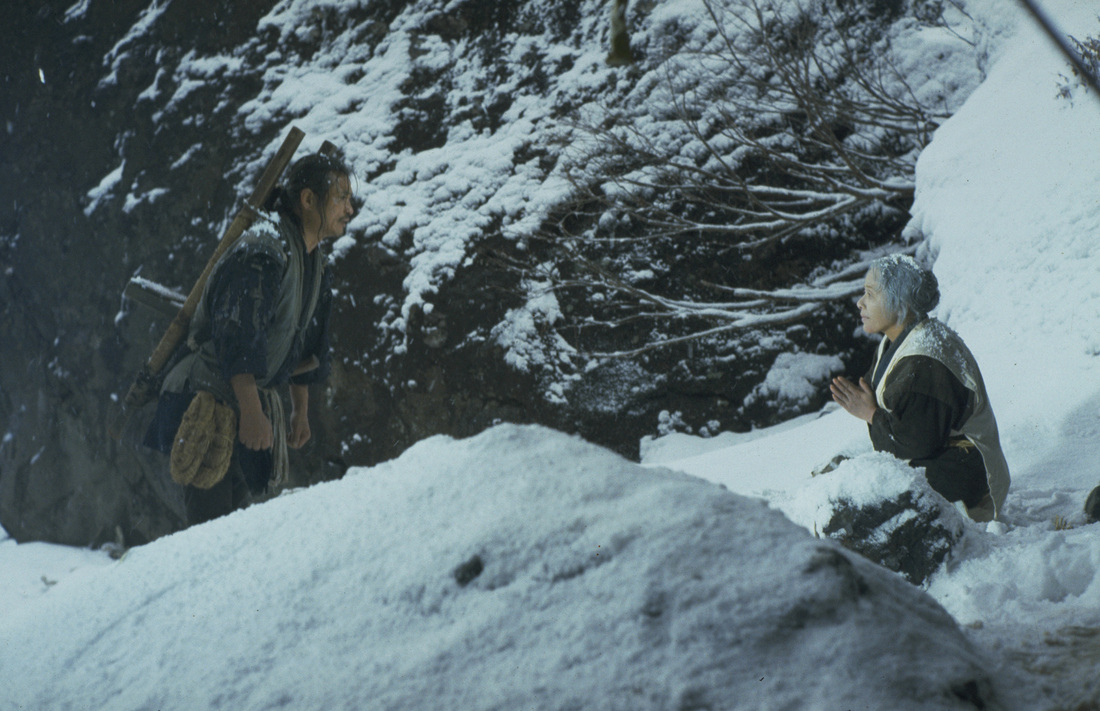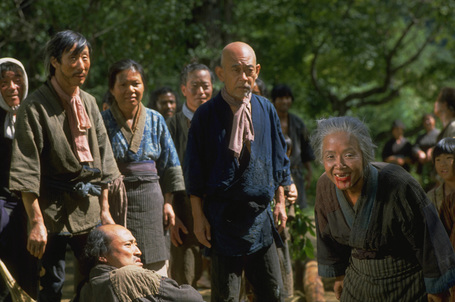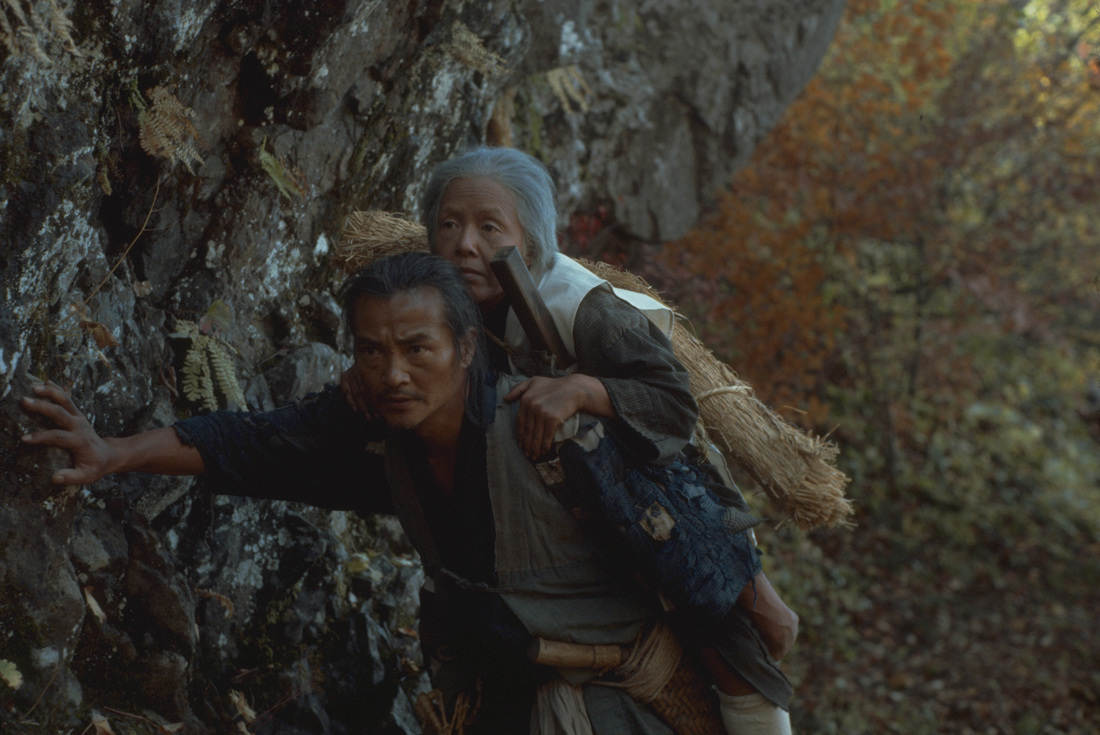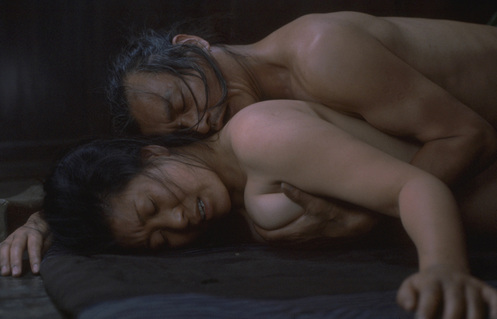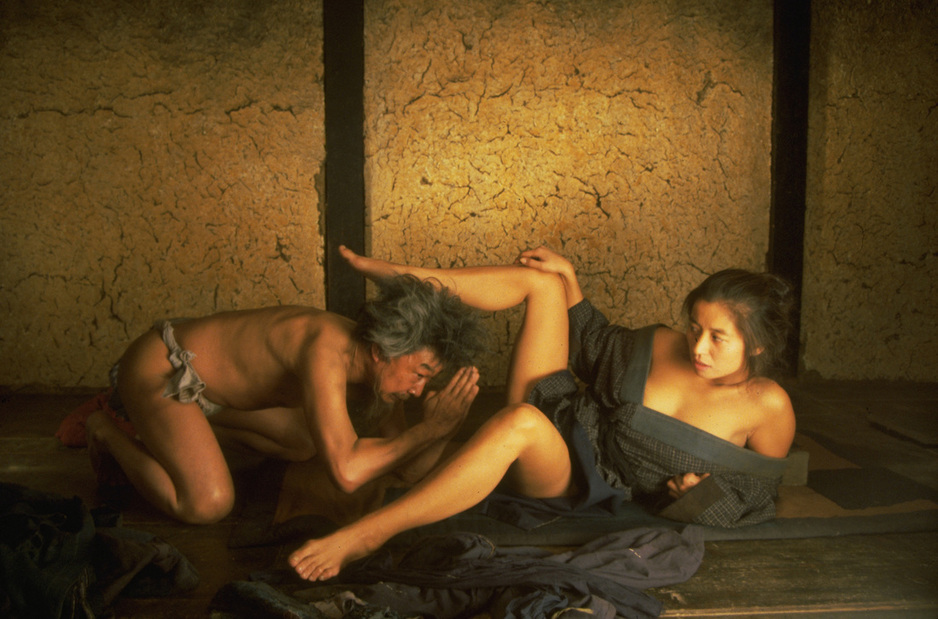|
How entertaining? ★★★★☆
Thought provoking? ★★☆☆☆ 24 October 2011
This a movie review of THE BALLAD OF NARAYAMA. |
“People who have no guts beat other people up,” Granny Orin (Sumiko Sakamoto).
I can see why this won the Grand Prix at Cannes in ’83. It is an exquisitely assembled picture of rural life in nineteenth century Japan. It is funny and quietly dramatic, the tone darkening as we witness the seasons pass from winter; observations commencing with striking snowy vistas and ending with the same climate a year later, wowed and caring about these protagonists. Director Shohei Imamura subtly immerses us in the routines, escapades, sex lives, superstitions, rules and callousness – one such example is once a villager turns 70 they must climb the titular mountain to die among ancestors. The focus is the Neko family, a diverse and intriguing bunch, each with their own travails; and their brushes with the community portrayed engagingly.
I can see why this won the Grand Prix at Cannes in ’83. It is an exquisitely assembled picture of rural life in nineteenth century Japan. It is funny and quietly dramatic, the tone darkening as we witness the seasons pass from winter; observations commencing with striking snowy vistas and ending with the same climate a year later, wowed and caring about these protagonists. Director Shohei Imamura subtly immerses us in the routines, escapades, sex lives, superstitions, rules and callousness – one such example is once a villager turns 70 they must climb the titular mountain to die among ancestors. The focus is the Neko family, a diverse and intriguing bunch, each with their own travails; and their brushes with the community portrayed engagingly.
What impresses me most is two fold:
1/ How expertly Imamura envelops the audience in his world, gently and deftly gripping you. I’m sure the fornication and incident help – but other films have those. It probably is his attention to detail, using the backdrop of landscape and nature to highlight and compare human frailty. This after all is a tale of survival, exploring mortality and hardship.
2/ The freshness of proceedings. Even though nearly 30 years old, the way the questions are asked feel that they are not being framed from a particular time.
Funnily enough Imamura’s son has done a sort of belated sequel, DENDERA, showing at this year’s London Film Festival – foolish and/or ambitious? A high benchmark to be measured against.


